Baking soda, widely known for its role in baking, has also become a popular ingredient in natural skincare and hair care routines due to its versatile benefits. Its advantages extend far beyond the kitchen, offering a simple yet effective solution for various hair care challenges. Whether you’re dealing with excess oil, product buildup, or a dry scalp, baking soda can help address these issues, leaving your hair feeling clean and refreshed.
In this comprehensive guide, we’ll explore the many uses of baking soda for hair care, including how to wash hair with baking soda. We’ll discuss how it can help manage oiliness, provide a deep cleanse for your scalp, and enhance the overall health of your hair. With easy-to-follow tips and methods, you’ll learn how to wash hair with baking soda and transform your hair to be healthier and more vibrant.
Benefits of Washing Hair With Baking Soda
Baking soda dissolved in water effectively removes buildup from oils, soaps, and other ingredients found in typical hair care products. By eliminating this buildup, baking soda can leave your hair feeling squeaky-clean, shiny, and soft.
The powdered consistency of baking soda also acts as an exfoliant, helping to remove dry skin from the scalp. For those concerned about additives in commercial shampoos or looking for a cost-effective alternative, baking soda presents a viable option.
Some people follow up their baking soda wash with an apple cider vinegar rinse. Since baking soda has a high pH, rinsing with vinegar helps to restore the scalp’s natural pH balance. While some individuals try this technique daily, many find that using it once a week is sufficient.
Anecdotal evidence suggests that some people experience positive results from washing with baking soda. However, scientific evidence does not currently support these claims.
Notes:
- Consult with a dermatologist before incorporating baking soda into your hair care routine, especially if you have sensitive skin or existing scalp conditions.
- Always balance baking soda use with moisturizing treatments to maintain hair health.
- Monitor your hair and scalp’s response to baking soda and adjust usage .
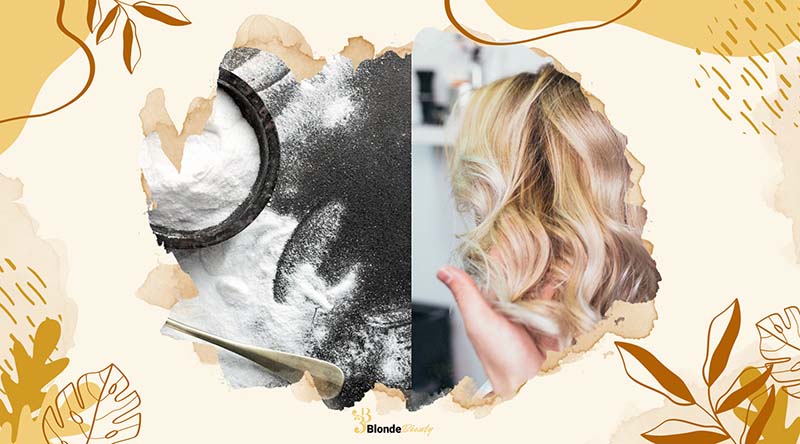
How to Wash Hair with Baking Soda
For those considering washing their hair with baking soda, here’s how to do it responsibly:
- Make a Baking Soda Paste: In a small bowl, combine two parts water and one part baking soda to form a paste.
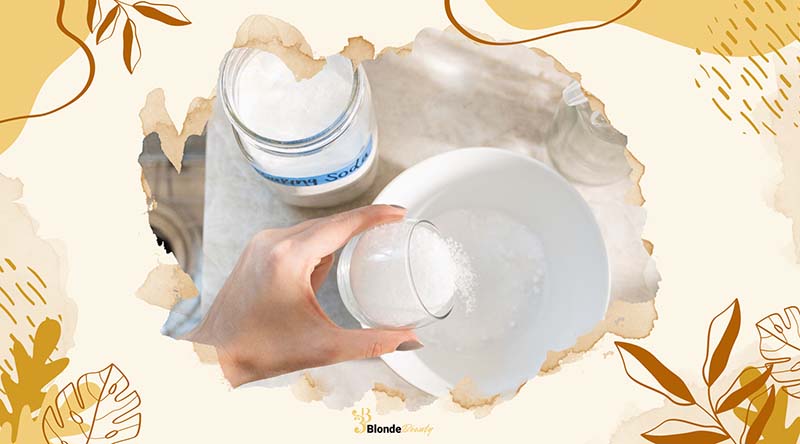
- Apply to Hair: Carefully spread the baking soda mixture onto wet or dry hair, paying particular attention to any oily spots on the scalp. Start at the roots and work your way down to the ends.
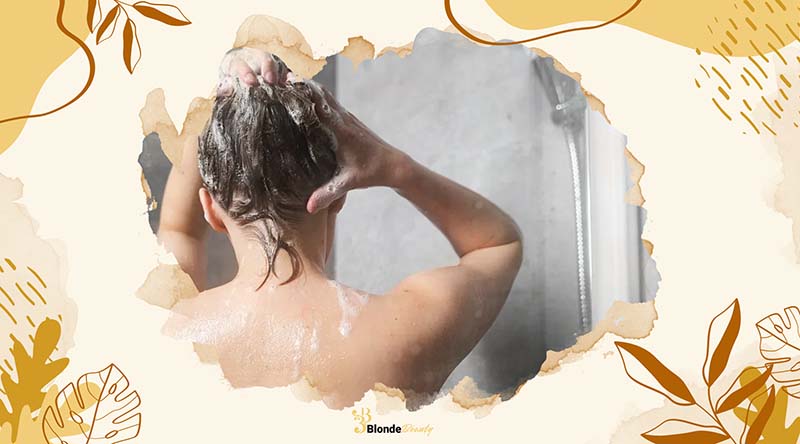
- Let it Sit and Rinse: Leave the baking soda paste on your hair for about three minutes, then rinse thoroughly.
- Wash and Condition Your Hair: After rinsing off the baking soda, follow up with a gentle moisturizing shampoo and conditioner to ensure your hair remains hydrated.
Remember to use baking soda treatments occasionally, as overuse can lead to dryness and scalp irritation.
Notes:
- Always follow up with a moisturizing conditioner to maintain hair health.
- To minimize the risk of dryness and breakage, use baking soda shampoo sparingly and always follow with a moisturizing conditioner.
When Should You Use Baking Soda Shampoo?
Here are some instances when you might consider using baking soda shampoo:
- Clarifying Hair: Baking soda effectively removes buildup from hair products, oils, and hard water minerals. If your hair feels heavy or looks dull due to product buildup, using baking soda shampoo occasionally can help clarify it.
- Oily Scalp: If you have an oily scalp, baking soda can help reduce excess oil and leave your hair feeling cleaner for longer periods.
- Dandruff: Some people find that baking soda helps with dandruff by gently exfoliating the scalp and reducing flakes.
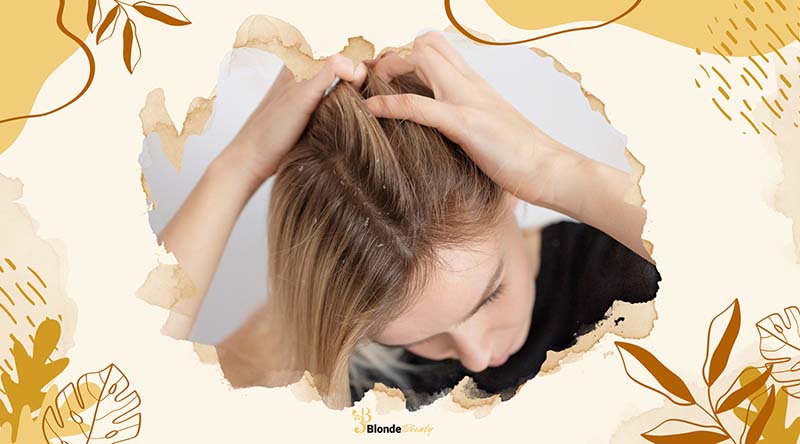
- Natural Hair Care: If you’re looking to avoid commercial shampoos with synthetic ingredients, baking soda can be a natural alternative for cleansing your hair.
Notes:
- Using baking soda too frequently can lead to dryness and irritation, so it’s advisable to limit its use.
- Combining baking soda with a moisturizing conditioner can help counteract its drying effects.
- Using a gentle, sulfate-free shampoo and a rich conditioner can help maintain moisture and prevent dryness.
Disadvantages of Baking Soda Shampoo
While baking soda serves as an excellent cleaner for tough kitchen tasks like scrubbing grills and stainless-steel sinks, its abrasive nature might not be as kind to your hair. Baking soda is significantly more alkaline than most commercial shampoos and can disrupt the natural pH balance of your scalp. Here are some risks to consider if you’re thinking about using baking soda on your hair:
Dryness: Baking soda’s powerful cleaning properties can remove too much natural oil from your hair. While it’s great at tackling grease, stripping away all the oil can leave your scalp and hair dry, and your hair might start to lose its shine. Unlike many shampoos that are formulated to cleanse and moisturize simultaneously, baking soda only cleanses. To combat dryness, pairing it with a natural conditioner infused with nourishing oils like coconut or argan can help replenish moisture.
Breakage: The gritty texture of baking soda can be harsh. Since it’s essentially a form of salt with tiny, abrasive particles, it might cause mechanical damage to your hair strands. This can lead to split ends and breakage, particularly if your hair is already delicate.
Scalp Irritation: For those with sensitive skin or conditions like eczema, baking soda might be too harsh, potentially leading to scalp irritation. It’s best avoided if your scalp is on the drier side or if you are prone to dermatological issues.
Using baking soda on your hair can certainly clean it, but it’s important to weigh these potential drawbacks against the benefits, especially if you have sensitive or delicate hair.
Notes:
- Baking soda can be drying for some hair types, so it’s best to use it sparingly and follow up with a conditioner.
- Always conduct a patch test before using baking soda on your scalp to ensure you don’t have an adverse reaction.
- If you have color-treated hair, be cautious as baking soda can strip away hair dye.
Alternatives to Baking Soda Shampoo
For those who prefer to use natural products, baking soda is not the only option. Many products on the market are suited to specific hair types. Natural ingredients for hair care may include:
- Coconut Oil: This can help seal in moisture and is beneficial for people with dry hair. Most natural food shops carry products containing coconut oil, which are also available for purchase online.
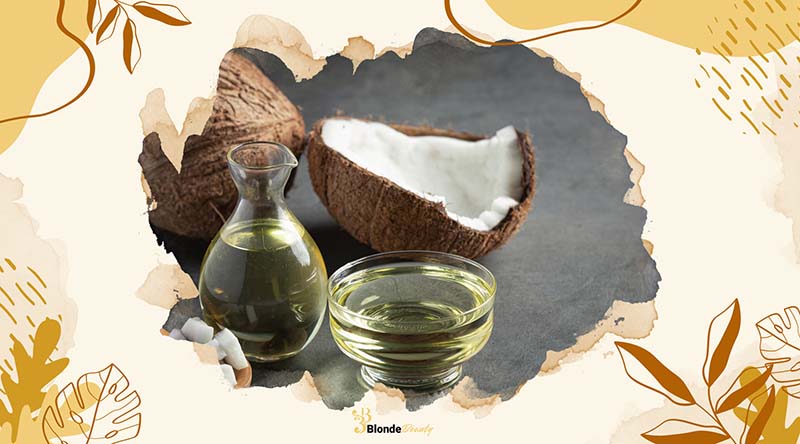
- Aloe Vera: This contains an enzyme that can stimulate hair follicles, promoting growth. It may also soothe dry, irritated scalps.
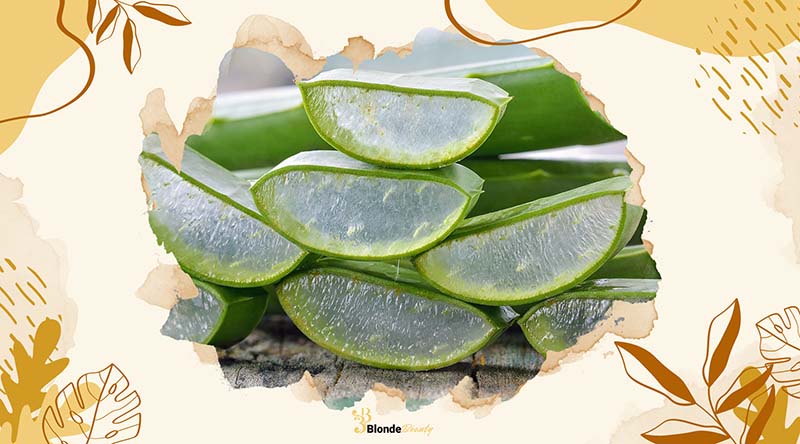
- Jojoba Oil: This oil is similar to the natural oil produced by the scalp and can help balance oil production while treating dry hair. A variety of jojoba oil products are available for purchase online.
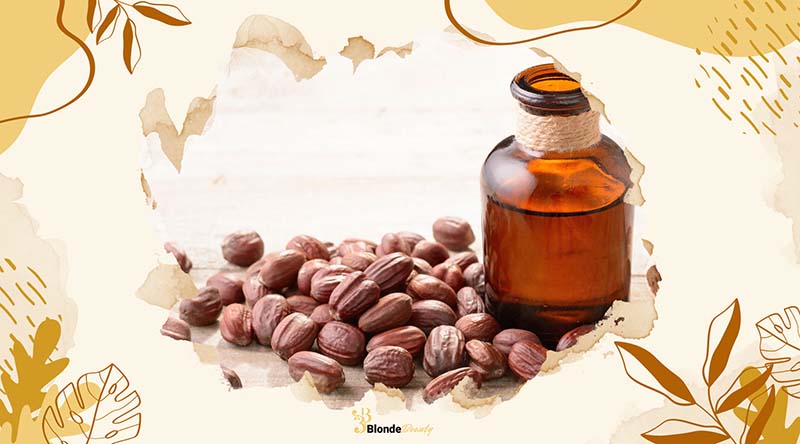
Notes:
- Coconut Oil: Apply to damp hair and leave it in for at least 30 minutes before washing out to deeply moisturize.
- Aloe Vera: Use fresh aloe vera gel or products with high aloe vera content to maximize benefits.
- Jojoba Oil: Massage into the scalp and hair, leave for a few minutes, then rinse thoroughly for balanced moisture.
Who Should Use Baking Soda on Hair?
Experts advise that no one should use baking soda for hair regularly due to its harsh nature. It is too abrasive for frequent use. The only individuals who might consider using it occasionally – perhaps once a month – are those with very oily scalps or hair, as it can help reduce excess oil.
However, people with dry scalps, dry hair, damaged hair, or color-treated hair should avoid using baking soda. The drying effects and potential damage far outweigh any benefits of using baking soda to cleanse the scalp and hair.
Conclusion
Baking soda, with its cleansing and clarifying properties, offers a variety of uses in hair care. From removing buildup to balancing the pH of your scalp, it can be a powerful tool for improving hair health.
However, it’s crucial to approach baking soda treatments with caution and moderation due to its potential for causing dryness and irritation. By incorporating it wisely and sparingly into your routine, you can enjoy the benefits of cleaner, healthier hair while maintaining its natural beauty and vitality.
For more great hair care advice and tips, be sure to check out more blogs from BlondeBeauty. Stay beautiful and keep shining.

Laureate Professor Clare Collins
Professor Clare Collins is a leading expert in nutrition and dietetics at the School of Health Sciences, part of the College of Health, Medicine and Wellbeing. Her work is changing the way we think about food and health. She grew up as one of nine children and was the first in her family to finish high school and go to college. This background gave her a strong work ethic and a deep appreciation for seizing opportunities.
As the Director of the Hunter Medical Research Institute’s Food and Nutrition Program and a recipient of three NHMRC Research Fellowships, Professor Collins is making a big difference in public health. She focuses on helping people who are often overlooked, using new technologies like apps and online programs to improve their nutrition and reduce the risk of chronic diseases.
Professor Collins is well-respected and has been recognized as a Fellow in four major health and science organizations. She leads a diverse team of experts, including dietitians, computer scientists, and engineers, working together on global health projects.
Her achievements are impressive. She has received over $29 million in research funding, published more than 450 papers, and helped 35 PhD and Master’s students complete their degrees. She’s also active in sharing her knowledge with the public. She has developed tools like the Australian Eating Survey and the Healthy Eating Quiz, and she often appears in the media to talk about nutrition.
PUBLISHED ARTICLES
- Collins, C. (2019). “The Effect of a Pilot Dietary Intervention on Pain Outcomes in Patients Attending a Tertiary Pain Service.”
- Collins, C. (2022). “Variation in cardiovascular disease risk factors among older adults.”
- Collins, C. (2022). “Evaluation of an online intervention for improving stroke survivors’ health-related quality of life: A randomised controlled trial.”
These articles show Professor Collins’s commitment to understanding how better nutrition can improve health. Her work is important for researchers, doctors, and anyone interested in healthy living.
